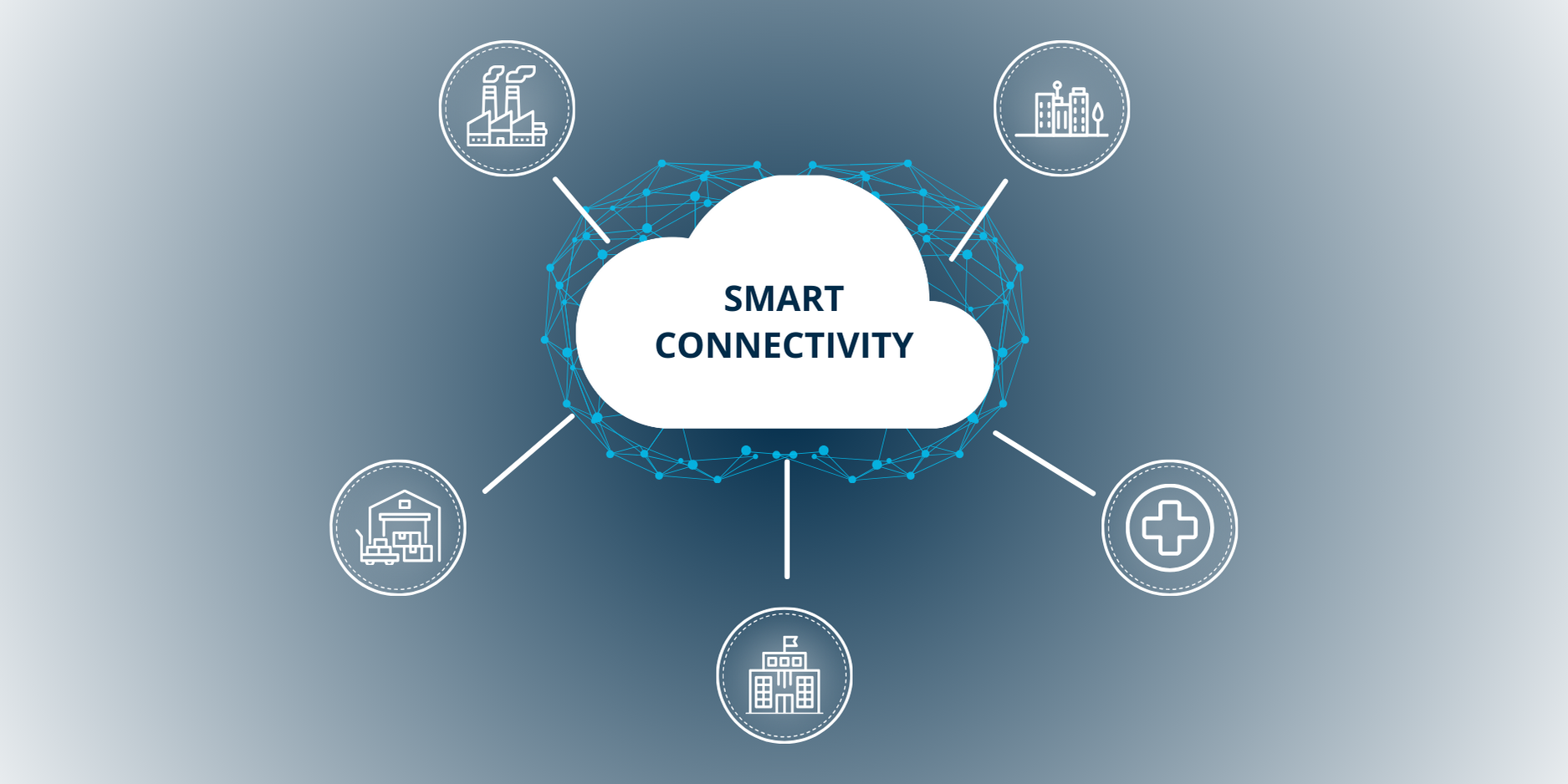As we already know, production processes are constantly evolving to give way to a new era: Industry 4.0. Thus, we can consider 5G technology a fundamental pillar within the factory environment of the future. But why? With the growing introduction of the Internet of Things in the industrial environment, it is increasingly common to find devices connected to the network, which is why it is so important that this connectivity is done quickly, efficiently and securely.

What is 5G technology?
5G technology, or fifth generation of mobile networks, is a leap in the evolution of wireless connectivity. Unlike the 4G network, 5G not only improves data transmission capabilities, but redefines transmission speeds, which can reach up to 10 Gbps. The 5G network can offer data transfers that surpass even traditional wired connections, providing a comparable or even superior experience.
But speed is not far behind: latency - network response time - is reduced to 5 milliseconds, essential for applications that require real-time solutions, such as augmented reality, virtual reality and remote control of industrial machinery. These features not only optimize the user experience in everyday applications, but also open new frontiers in industrial automation, the Internet of Things (IoT) and machine-to-machine connectivity.
What is the impact of 5G on Industry?
5G technology is not only designed to improve personal connectivity, but also has the potential to transform industries, from a factory to the healthcare sector, by facilitating seamless real-time communication between devices, systems and people. In the industrial arena, this technology is embodied through 5G campus networks, which are private local wireless networks designed specifically for businesses and organizations that require a secure, fast and reliable communication infrastructure.
These 5G campus networks are essential for the evolution of Industry 4.0 and the Internet of Things (IoT), as they allow multiple equipment and devices to be connected simultaneously without compromising system stability and efficiency. This means that companies can integrate numerous devices into their operations without fear of network interruptions or outages, ensuring more efficient and controlled production processes. The 24-hour uninterrupted monitoring capability not only optimizes performance, also improves safety in the industrial environment by enabling more effective preventive maintenance, reducing equipment downtime and operating costs.

What is the impact of 5G on Industry?

5G technology is not only designed to improve personal connectivity, but also has the potential to transform industries, from a factory to the healthcare sector, by facilitating seamless real-time communication between devices, systems and people. In the industrial arena, this technology is embodied through 5G campus networks, which are private local wireless networks designed specifically for businesses and organizations that require a secure, fast and reliable communication infrastructure.
These 5G campus networks are essential for the evolution of Industry 4.0 and the Internet of Things (IoT), as they allow multiple equipment and devices to be connected simultaneously without compromising system stability and efficiency. This means that companies can integrate numerous devices into their operations without fear of network interruptions or outages, ensuring more efficient and controlled production processes. The 24-hour uninterrupted monitoring capability not only optimizes performance, also improves safety in the industrial environment by enabling more effective preventive maintenance, reducing equipment downtime and operating costs.
On this matter, Bosch Rexroth has developed ctrlX AUTOMATION, a 5G-enabled automation platform that breaks down the boundaries between machine controls, information technology and IoT. As the first 5G-enabled platform, ctrlX AUTOMATION facilitates the integration of a wide range of devices, ensuring seamless and efficient connectivity across the industrial environment.
5G networks do not necessarily replace other communication technologies that already exist in factories, such as TSN (Time-Sensitive Networking). Both can coexist; what is crucial is that communication devices have interfaces that are compatible with both 5G and TSN, thus ensuring a versatile infrastructure that is ready for the challenges of the future.
5G network applications

- Industry: Production processes are increasingly automated and networked, triggering greater influx of smart machines, robotics and IoT devices in industries.
- Smart cities: Cities can become more efficient and sustainable through smart traffic management, public safety systems and environmental monitoring.
- Healthcare: Low latency enables efficient real-time communication, resulting in faster diagnosis, more effective treatment and better patient care.
- Educational institutions: Rapid access to online resources, real-time communication and the introduction of innovative methods optimize learning
- Logistics and intelligent transportation systems: The 5G network enables seamless and efficient communication between vehicles, terminals, warehouses and distribution centers.
5G network applications

- Industry: Production processes are increasingly automated and networked, triggering greater influx of smart machines, robotics and IoT devices in industries.
- Smart cities: Cities can become more efficient and sustainable through smart traffic management, public safety systems and environmental monitoring.
- Healthcare: Low latency enables efficient real-time communication, resulting in faster diagnosis, more effective treatment and better patient care.
- Educational institutions: Rapid access to online resources, real-time communication and the introduction of innovative methods optimize learning
- Logistics and intelligent transportation systems: The 5G network enables seamless and efficient communication between vehicles, terminals, warehouses and distribution centers.
5 key advantages of the 5G network in the industry
The implementation of 5G technology in industry represents a significant shift towards Industry 4.0, as it is a key tool to optimize operational efficiency and ensure more reliable and automated production processes. In addition, predictive maintenance and downtime reduction are just some of the advantages that the 5G campus network brings to companies looking to stay competitive in the market. Do you want to know where to start to integrate this technology and turn your factory into the Factory of the Future? At DBR Automation we will help you through the entire process.

